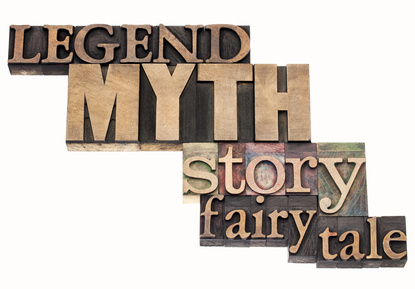I love fairy tales, which is a sad confession for a 1970s feminist and a woman of reasonably advanced age. But once upon a time, my favorite babysitter gave me what soon became a treasured Christmas gift: SHIRLEY TEMPLE’S FAVORITE FAIRY TALES, or something like that. She knew I adored Shirley Temple after having seen a few of her movies, and my favorite doll was in her image.
I immediately removed the protective paper cover from the book, I always did, I liked the feel and the simplicity of a hardcover and this one was special. Scarlet, with a golden spine and shiny gilded pages, the title embossed to match the binding. Huge and heavy, it dwarfed my pint-sized lap. A tome filled with fairy princesses, evil queens, knights in shining armor, trolls and goblins, elves and dwarfs, giants, mermaids, gnomes, wizards, all alive in a world of magical enchantments.
Each story began with a magnificent glossy picture of an important scene, the chapters identified with ornate calligraphy. I studied those pictures endlessly, scrutinizing every detail, running my small fingers over the shiny page. I even tried to mimic what I thought was some magical form of ancient writing. I’d beg anyone I could to read to me, until one day I just curled up in bed and read it myself. I probably had each one memorized; I’d heard them often enough.
I kept it until it was in tatters. I’d taped it together several times after my little brothers and sisters got their grimy hands on it. But eventually I lost track of it and I suspect my mother finally tossed it. When my own children were born I tried to find the book, but never did. I’ve thought about this book often, even tried to find it today on Amazon, but to no avail.
In my blog entitled Oh! Save Me! Save Me! The Hero Model, I dissected the Hero Model, which of course plays a major part in the fairy tale genre. Merriam Webster defines a fairy tale as: “a simple children’s story about magical creatures; a false story that is meant to trick people.” And I thought that analysis an interesting commentary. Fantastic forces and beings do abound and yet they left out the most important aspect of a fairy tale: THE ENDING! It’s not a fairy tale if it doesn’t have a happily-ever-after-ending! It’s a well-known cliché, for heaven’s sake, and even bears some responsibility for our inability to find our own knight it shining armor. (Okay, a few don’t have a happy ending.) And not only is a fairy tale not true, it is usually so fantastic that it couldn’t possibly be true.
The first known use of a fairy tale was in 1749 and is based upon European folklore and is different from a fable, which always includes a moral, and frequently a beast of some sort; or a legend, which is based on some event with authenticity or realism, truth and accuracy being intrinsic. The tellers and hearers believe a legend to be grounded in historical truth and they are only similar to fairy tales because they happened “Once upon a time…”
As I wrote this, I asked myself why? What was the point? Did I have one? Or was it just a nostalgic rambling. And then it hit me. The stories I wrote first were all fairy tales but I hadn’t thought of them that way. Me? A writer of fairy tales? Why wasn’t I writing more profound stories, something that would change the world? Why not something more gritty, chronicling the trials and tribulations of some downtrodden, hardworking soul?
The answer is simple. I read to escape from the stress and routine of the real world. Of course I’ve read many of those bestsellers that everyone should read. How else could I experience The Holocaust, or slavery, or sexual abuse? How would I know what it’s like to live in Russia, or be stranded on a mountain and be forced to succumb to eating human flesh to survive? How would I understand how the brutal invasion of Christianity nearly destroyed the culture of Hawaii? Reading for those purposes is important and necessary. But what do I love most? A fairy tale. A romantic encounter with magical moments and enchanting characters that I just can’t put down. A woman who’s knocked off (not up) her feet by a handsome and dangerous stranger.
(Now I do write those stories, but I still love a good fairy tale and my love stories do always end with a happily-ever-after.
Up Next: Writing Dialogue




